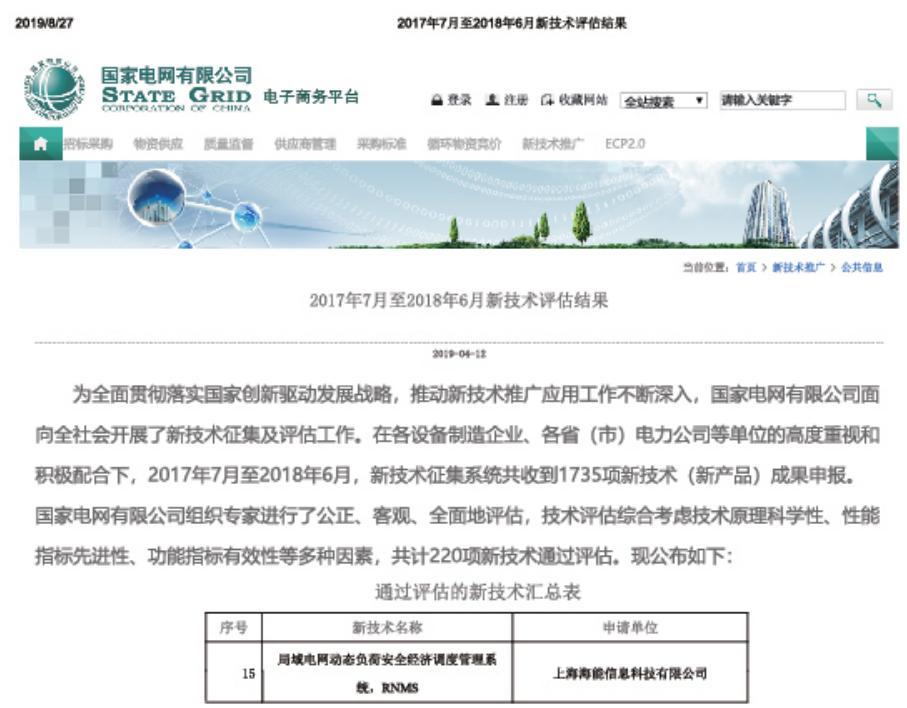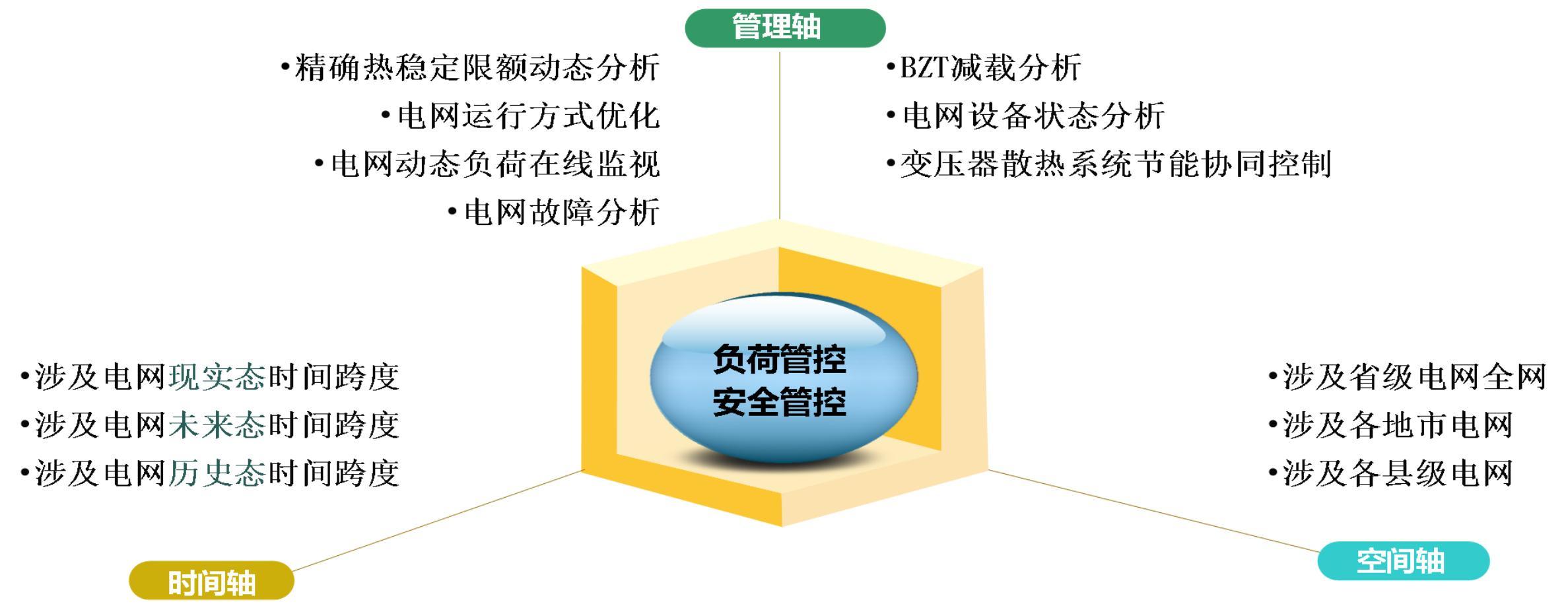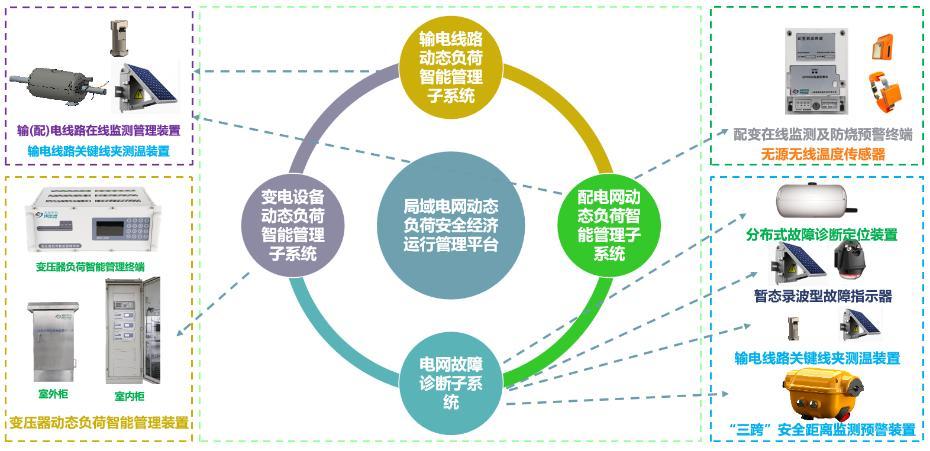PRODUCTS
Products
Local power grid dynamic load security economic management system
Classification:
Key words:
1. Background introduction
With the development of the national economy, the contradiction between the power supply capacity and the actual power demand in some areas is becoming more and more obvious, facing the problems of line channel blockage and limited substation transmission capacity during the peak of power consumption such as the peak summer; when the N-1 and N-2 operation mode occurs in some areas, it will directly affect the load transmission, and even endanger the stable operation of the power grid and the safety of power transmission and transformation equipment.
In addition, the environment of overhead transmission lines in the power grid is harsh, the structure of overhead distribution network lines is complex, lightning is still one of the important causes of line failure, in the three-span regional line also faces the risk of external damage; distribution transformer faces the problem of three-phase load imbalance, burning accidents occur from time to time. With the continuous improvement of the state monitoring level of power equipment, it has become a reality to fully explore the load capacity of the existing power equipment, ensure its thermal stability and safety, and quickly and accurately find out the fault point of the line and the abnormal point of the temperature rise of the power equipment.
Based on on-line monitoring technology, thermal circuit model and fault diagnosis and analysis algorithm, the dynamic load safety and economic management system of local power grid aims to maximize the operation economy of power grid, accurately grasp the health status of equipment, quickly carry out fault analysis, fully display the load situation of power grid, and ensure the safe operation of power grid.

2. Basic functions
Based on the time axis, space axis and management axis, the system achieves the goal of load control and safety control, obtains and accumulates the real-time operation data and historical data of the power grid, obtains the historical load capacity of the local power grid, evaluates the real-time load capacity, and gives the prediction of the load capacity of the future time period in combination with the weather forecast information.

The system consists of "transmission line dynamic load intelligent management subsystem", "distribution network dynamic load intelligent management subsystem", "substation equipment dynamic load intelligent management subsystem", "grid fault diagnosis subsystem.

Transmission Line Dynamic Load Intelligent Management Subsystem
Real-time monitoring of overhead transmission line operating conditions and environmental parameters information, the establishment of thermal model algorithm based on environmental conditions, to ensure the safety of the line under the premise of the transmission line long-term current carrying capacity, N-1 operation mode of safe operation time, safe time maximum allowable current (such as half an hour), to achieve the overhead transmission line dynamic load capacity assessment, temperature alarm, operating data statistics.
Distribution Network Dynamic Load Intelligent Management Subsystem
Distribution network dynamic load intelligent management subsystem involves power equipment, including distribution lines and distribution transformers. Distribution network line dynamic load intelligent management function is the same as above. For the distribution transformer, by monitoring and analyzing its operating parameters, it can realize the monitoring of the operating state of the distribution transformer, the temperature-load collaborative early warning, and achieve the purpose of intelligent load management.
Substation equipment dynamic load intelligent management subsystem
Fully consider the influence of environmental factors on the heat dissipation capacity of the main transformer, monitor, analyze and calculate the operation state of the main transformer (including winding hot spot temperature, winding average temperature, line oil temperature difference, etc.), complete the real-time evaluation of dynamic load capacity (give long-term safe operation load rate, 30min safe operation load rate, load rate-safe working time curve), and provide temperature-load coordination real-time warning and operation strategy suggestions, achieve the purpose of load intelligent management.
power grid fault diagnosis subsystem
The power grid fault diagnosis subsystem relies on online monitoring means to provide:
• Transmission line fault type identification, accurate location of fault point
• Distribution network line fault local indication, fault section location
• Overhead line external force damage prevention alarm and monitoring
Real-time temperature monitoring and fault warning at key points such as transformer pile head, equipment clamp, cable joint, wire connection and suspension
Next Page
Your suggestion is our driving force
Related Products
The transformer dynamic load intelligent management system is used to solve the problems of low operating efficiency of large transformers, difficulty in internal temperature monitoring, and limited operation of transformers under heavy (over) load, and to improve the operating efficiency of transformers without affecting the service life and safe operation of transformers.
The dynamic load management system of transmission line is used to solve the problems such as limited load capacity of transmission line and difficult to meet the demand of load growth, and to improve the operation level and load capacity of the line without changing the existing network structure and without affecting the thermal stability of the line.
Due to the technical limitations of the traditional transmission line fault location device, it is difficult to quickly and accurately locate the fault point and identify the fault type when the fault of the transmission line occurs in the complex operating environment (lightning strike, mountain fire, wind deviation, tree barrier, floating object, etc.). The distributed fault diagnosis device for transmission lines is based on fault local recording technology and traveling wave location method, which can effectively solve the problems of low positioning accuracy and difficult identification of fault types of traditional fault location devices.

